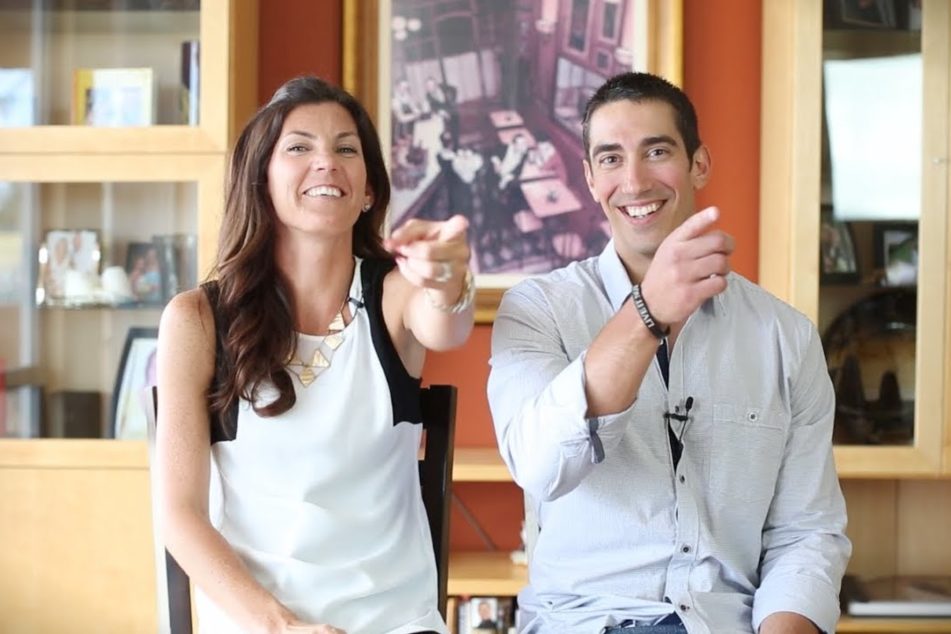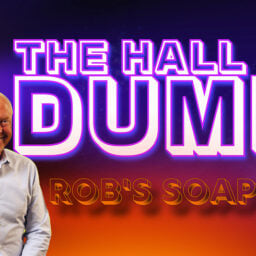From one of my favorite websites…https://www.marcandangel.com/ this article is one of those you may come back to from time to time as a reminder of 4 thins you need to remember!!!!
This will help keep your seconds, minutes, hours in check! Enjoy!
1. Everything you love and everything you are comfortable with is changing today.
(Note: This is an excerpt from our “Getting Back to Happy” book.)
Over the past decade, as Marc and I have gradually worked with hundreds of our course students, coaching clients, and live event attendees, we’ve come to understand that the root cause of most human stress is simply our stubborn propensity to hold on to things. In a nutshell, we hold on tight to the hope that things will go exactly as we imagine, and then we complicate our lives to no end when they don’t.
So how can we stop holding on?
By realizing that there’s nothing to hold on to in the first place.
Most of the things we desperately try to hold on to, as if they’re real, solid, everlasting fixtures in our lives, aren’t really there. Or if they are there in some form, they’re changing, fluid, impermanent, or simply imagined in our minds.
Life gets a lot easier to deal with when we understand this.
Imagine you’re blindfolded and treading water in the center of a large swimming pool, and you’re struggling desperately to grab the edge of the pool that you think is nearby, but really it’s not—it’s far away. Trying to grab that imaginary edge is stressing you out, and tiring you out, as you splash around aimlessly trying to hold on to something that isn’t there.
Now imagine you pause, take a deep breath, and realize that there’s nothing nearby to hold on to. Just water around you. You can continue to struggle with grabbing at something that doesn’t exist… or you can accept that there’s only water around you, and relax, and float.
In “Getting Back to Happy”, Marc and I also guide readers through the process of letting GO.
And no, it’s not easy. One of the hardest lessons in life is letting go—whether it’s guilt, anger, love or loss. Change is never easy—you fight to hold on and you fight to let go. But letting go is oftentimes the healthiest path forward. It clears out toxic attachments from the past and paves the way to make the most positive use of the present.
You’ve got to emotionally free yourself from some of the things that once meant a lot to you, so you can move beyond the past and the pain it brings you.
2. 98% of the pain you feel today is self-created by your emotional attachments to the past.
If somebody is working on themselves and changing for the better, it’s unnecessary to keep bringing up their past. People can change and grow. You know this is true.
But, have you given yourself a fair chance to change and grow, too?
Have you consciously loosened your grip on everything that’s behind you, so you can step forward again with grace?
If you’re shaking your head, you aren’t alone. I know exactly how you feel. I’ve been there myself, and I know dozens of others in the same boat. At times, we all fall victim to our attachments. And sometimes we don’t even realize we’re blocking our own present blessings by holding on to the past. Do your best to realize this right now…
Growth is painful. Change is painful. But in the end, nothing is as painful as staying stuck somewhere in the past.
Remind yourself of a powerful lesson … a vital truth:
You can have a heartbreaking story from the past, without letting it rule your present.
In the present moment, we all have some kind of pain: anger, sadness, frustration, disappointment, regret, etc.
Notice this pain within yourself, watch it closely, and see that it’s caused by whatever story you have in your head about what happened in the past (either in the recent past or in the distant past). Your mind might insist that the pain you feel is caused by what happened (not by the story in your head about it), but what happened in the past is NOT happening right now. It’s over. It has passed. But the pain is still happening right now because of the story you’ve been subconsciously telling yourself about that past incident.
Note that “story” does not mean “fake story.” It also does not mean “true story.” The word “story” in the context of your self-evaluation doesn’t have to imply true or false, positive or negative, or any other kind of forceful judgment call. It’s simply a process that’s happening inside your head:
- You are remembering something that happened.
- You subconsciously perceive yourself as a victim of this incident.
- Your memory of what happened causes a strong emotion in you.
So just notice what story you have, without judging it, and without judging yourself. It’s natural to have a story; we all have stories. See yours for what it is. And see that it’s causing you pain. Then take a deep breath, and another…
Inner peace begins the moment you take these deep breaths and choose not to allow the past to rule your present emotions.
Have faith in the NOW.
3. Many of the things you’d like to control today are better left uncontrolled.
Some things in life are worth changing and controlling. Most things are not.
Let that sink in for a moment.
“If you want to control the animals, give them a larger pasture.” That’s a quote Marc and I heard at a meditation retreat several years ago in a group discussion focused on the power of changing your attitude about the things you can’t change or don’t need to change.
I see “the animals” and their “larger pasture” as a form of letting go and allowing things to be the way they are. Instead of trying to tightly control something, you’re loosening up, giving it more space—a larger pasture. The animals will be happier; they will roam around and do what they naturally do. And your needs will be met too; you will have more space to be at peace with the way the animals are.
This same philosophy holds true for many aspects of life—stepping back and allowing certain things to happen means these things will take care of themselves, and your needs will also be met. You will have less stress (and less to do), and more time and energy to work on the things that truly matter, and the things you actually can control—like your attitude about everything.
This form of letting go is not giving up. It’s about surrendering any obsessive attachment to particular people, outcomes and situations. It means showing up every day in your life with the intention to be your best self, and to do the best you know how, without expecting life to go a certain way. It’s about focusing on what matters and letting go of what does not.
The energy of someone aspiring to create something wonderful, teamed with this kind of surrender, is far more powerful and rewarding than someone determined to create outcomes with a desperate “must have” mentality. Surrender brings inner peace and joy, and lest we forget that our outer lives are a reflection of our inner state of being.
So, go ahead and put yourself back in control by letting most things be.
4. Your time today is more priceless and fleeting than it feels.
This morning I was replying to emails from our newest course students when I came across one from a student named Laura that immediately grabbed my attention. The subject read:
“Your book gave me strength when I was dying.”
The opening paragraph of her email went on to say, “I just want to thank you for giving me hope, daily reminders, and the little tools I needed. As I was literally fighting for my life after emergency heart surgery, I read the copy of your new book that you sent me while I was in the hospital. During the hardest part of the recovery process, I’d try to force myself to read for just five minutes at a time because it was all the energy I had. But even in small doses, your words kept my spirits high and focused effectively when I needed it most. The daily ritual of reading your book was truly my lifeline at times. And believe it or not, the 50% estimated chance of full recovery they gave me just a couple short months ago became 99.9% this morning when my doctors officially concluded that my surgery and ongoing procedures have all been incredibly successful.”
Now, that’s pretty darn incredible! Talk about a brave woman and an inspiring journey! And then she wrapped up her email with this: “I’m just so grateful I get to use what you’ve taught me for my second chance at life.”
Above all else, her email reminds me that too many of us wait too long to live our best lives. We keep putting everything that’s important to us off until tomorrow. Then, before we know it, we find ourselves asking, “How did it get so late so soon?” Or, we simply don’t have as much time as we expected.
Don’t let this be YOU.
Like Laura, make today the beginning of your second chance at life. Take time to figure yourself out. Take time to realize what you want and need. Take time to take risks. Take time to love, laugh, cry, learn, and work for what you need. Life is shorter than it often seems.
Let this be your wake-up call to stop waiting.
What we do today day defines us!
Tomorrow’s progress is always compounded by today’s effort, no matter how small.
Many wonderful little things can be done in a day if you don’t always make that day tomorrow. Take positive action and plant the right seeds in your life. Nature herself does not distinguish between what seeds she receives. She grows whatever seeds are planted. This is the way life works. Be mindful of the seeds you plant today, as they will become the crop you harvest tomorrow.
Truth be told, someday there REALLY won’t be a tomorrow! And this hard reality needs to be respected. I was actually reminded of all this earlier today when I was chatting with a 74-year-old course student about regrets, and she started our call by saying (I’m sharing this with permission): “Why didn’t I learn to accept and appreciate it all, and treat every day like it was the last time? Honestly, my biggest regret is how often I believed in tomorrow.” … May we all take heed to her words, and learn from them.










